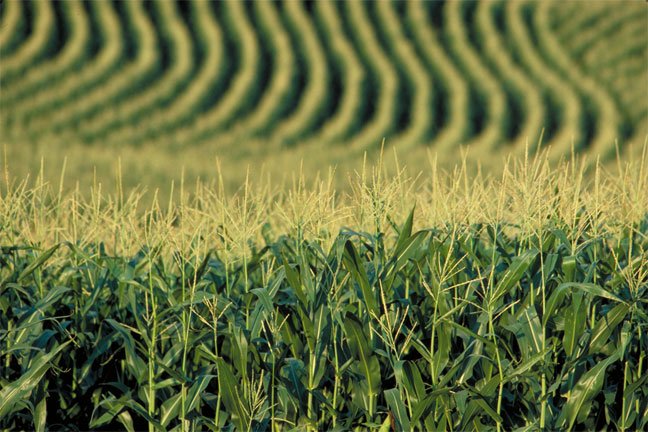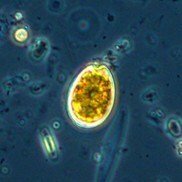Saturday, 7 February 2026
GM crops increase environmental sustainability and farmer incomes: report
Over the last twenty years, biotech crops have increased agriculture’s environmental sustainability, while providing significant economic benefits, according to a newly released global impacts study. Over the last twenty years, biotech…

Over the last twenty years, biotech crops have increased agriculture’s environmental sustainability, while providing significant economic benefits, according to a newly released global impacts study.
Over the last twenty years, biotech crops have increased agriculture’s environmental sustainability, while providing significant economic benefits, according to a newly released global impacts study.
The use of biotech/genetically modified (GM) seeds has allowed farmers to adopt more sustainable practices like reduced tillage, significantly reducing greenhouse gas emissions, according to the report “GM Crops: Global Socio-Economic and Environmental Impacts 1996-2015” released by PG Economics.
“Over the last 20 years, where farmers have been given access to, and the choice of growing biotech/GM crops, they have consistently adopted the technology, contributing to a more sustainable food supply and a better environment where they live,” said Graham Brookes, director of PG Economics, co-author of the report.
Jim Greenwood, President and CEO of the Biotechnology Innovation Organization (BIO), pointed out the significance of the report’s findings regarding biotechnology’s environmental contributions.
“The increased use of biotech crops has allowed farmers to grow more sustainably,” said Greenwood. “Without biotech crops, billions more kilograms of carbon dioxide would have been emitted in 2015 alone – the equivalent of adding 11.9 million cars to the roads. Additionally, these crops have reduced the need for crop protection products and enhanced soil quality.”
The PG Economics annual global impacts report quantifies the impact of agricultural biotechnology on the environment and on farmer incomes since biotech’s commercialization in 1996. Key findings include:
From 1996 to 2015, crop biotechnology has reduced spraying of crop protection products by 619 million kilograms, an 8.1 percent global reduction. As a result, farmers using biotech crops have reduced environmental impact associated with their crop protection practices by 18.6 percent.
Crop biotechnology has helped farmers adopt more sustainable practices like reduced tillage, which decreases the burning of fossil fuels and retains more carbon in the soil, enabling significant reductions in greenhouse gas emissions. Had biotech crops not been grown in 2015, for example, an additional 26.7 billion kilograms of carbon dioxide would have been emitted into the atmosphere, the equivalent of adding 11.9 million cars to the road.
Over twenty years, biotechnology has been responsible for the production of an additional 180.3 million tonnes of soybeans and 357.7 million tonnes of corn, as well as an extra 25.2 million tonnes of cotton and 10.6 million tonnes of canola.
For farmers using GM seeds, the economic benefits amounted to an average increase in income of $90/hector in 2015 – a net farm level economic benefit of $15.5 billion. From 1996 to 2015, the net global farm income benefit due to GM seed was $167.7 billion.
The highest yield gains continue to be for farmers in developing countries, many of which are resource-poor and farm small plots of land. In 2015, farmers in developing countries received $5.15 for every extra dollar invested in GM seeds.
Technology
Australia Approves Commercial Release of GM Purple Tomato
Feb 06, 2026 | Australia
Detmold Group Reports Progress on Emissions Reduction, Circular Packaging Goals
Feb 05, 2026 | Australia
FAO on Balancing Climate Urgency and Food Safety in Emerging Agrifood Technologies
Feb 05, 2026 | Food Security
Food Testing
AFNOR International Eyes Global Food Safety Growth with HACCP Group Takeover
Feb 04, 2026 | Australia
Incheon National University researchers uncover hidden toxin risks during nutrient-starved algal blooms
Feb 02, 2026 | Food Safety and Testing
How audit-led approaches are reinforcing trust in retail food safety
Feb 02, 2026 | Food Safety and Testing
More Popular
Fertility Meets Farm-to-Table Dining with Launch of ‘The Fertility Table’ in India
Feb 06, 2026 | Company News
Australia Approves Commercial Release of GM Purple Tomato
Feb 06, 2026 | Australia
Alternative Proteins Could Add €111 Billion Annually to EU Economy by 2040, Study Finds
Feb 06, 2026 | Europe






